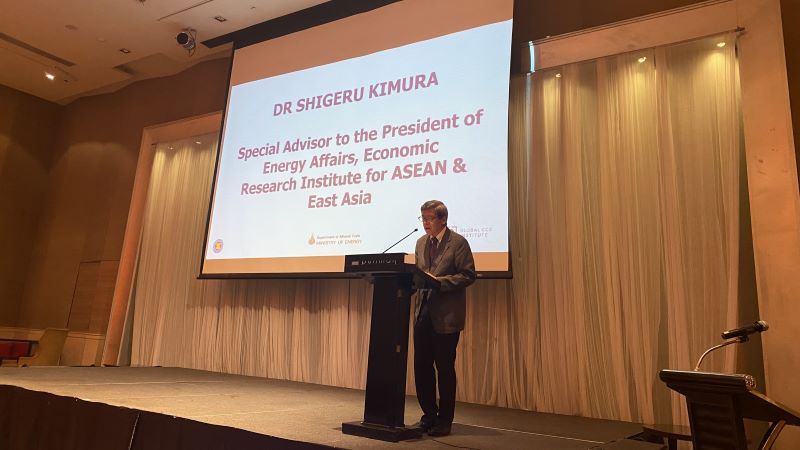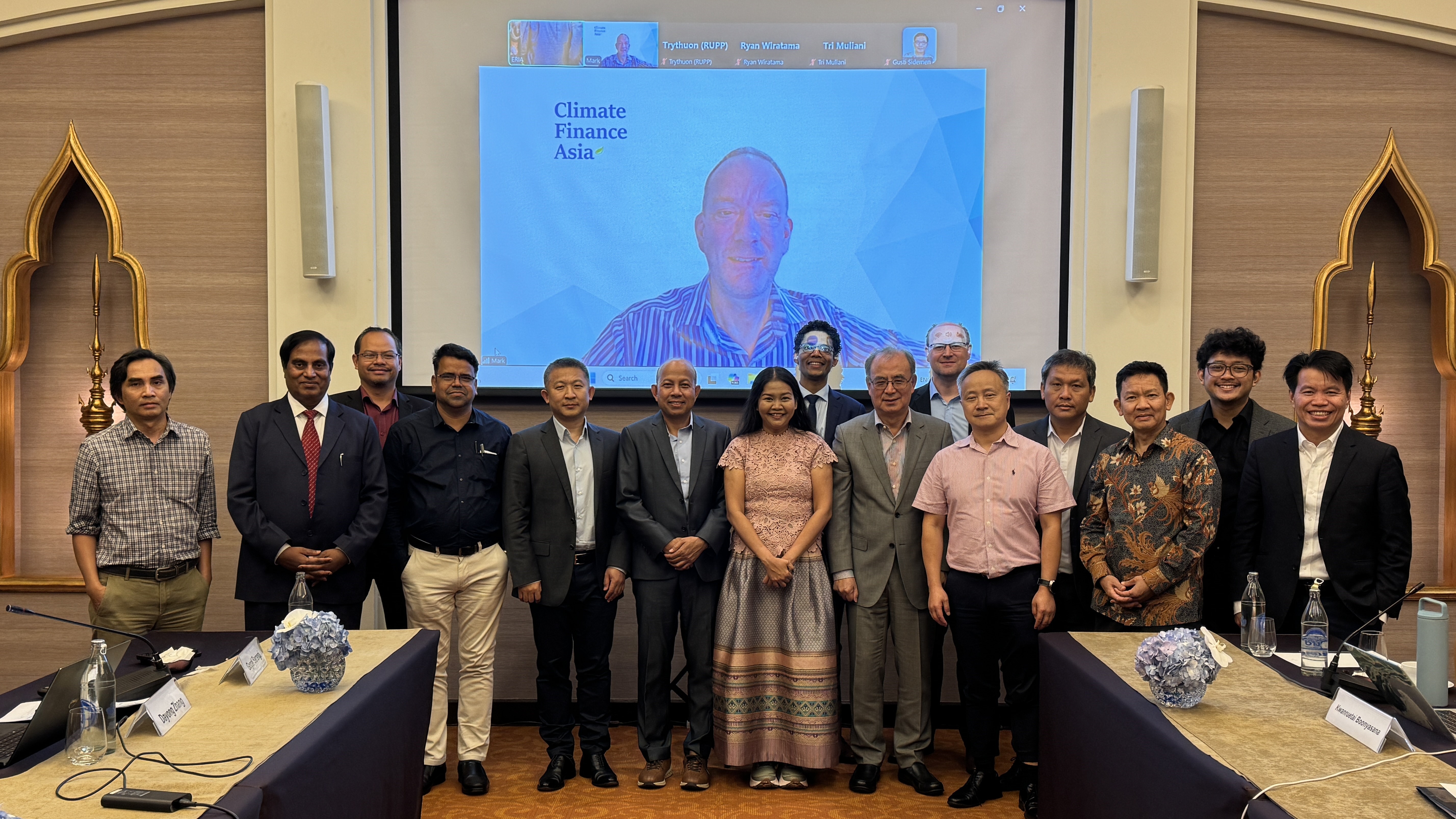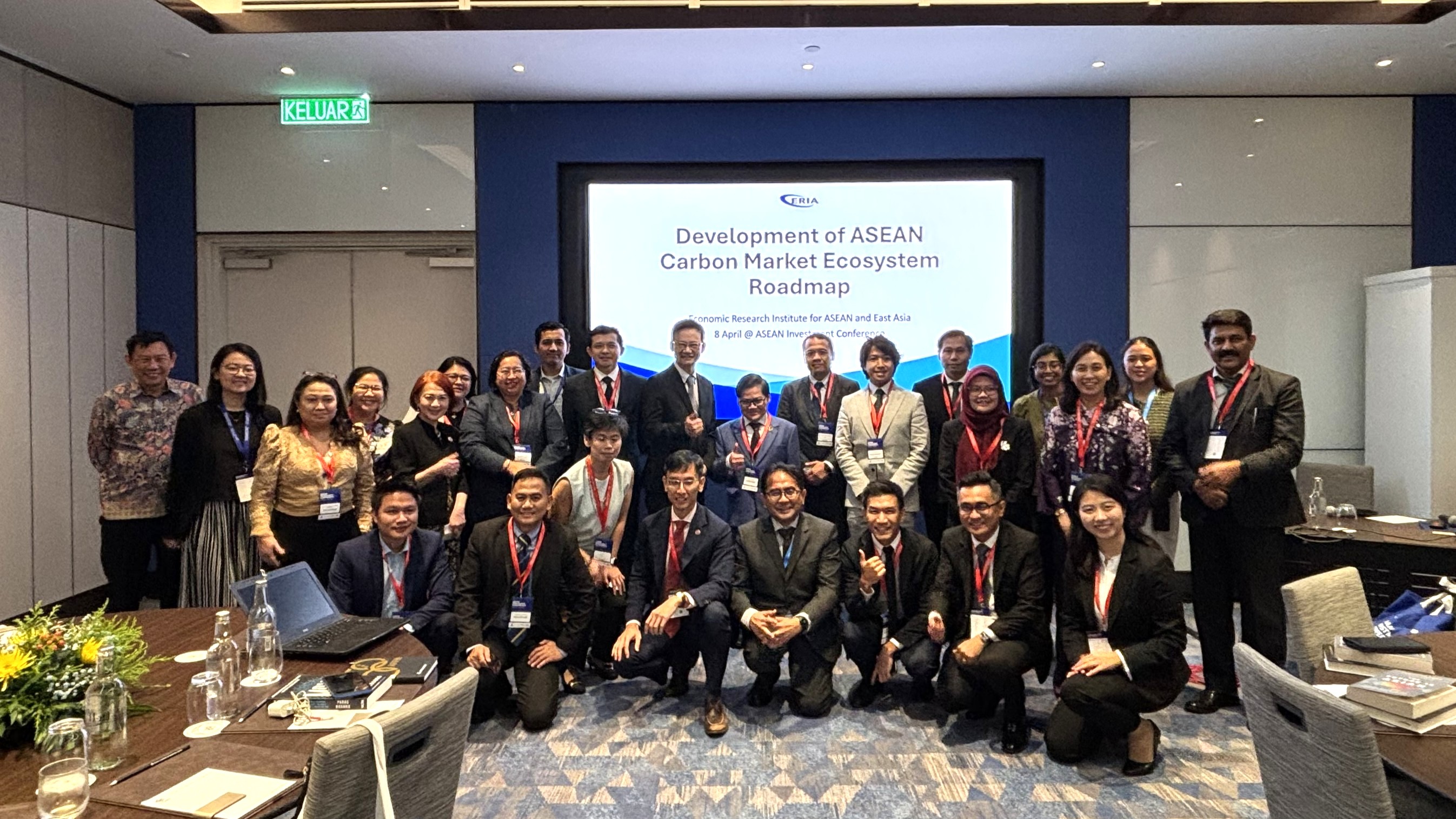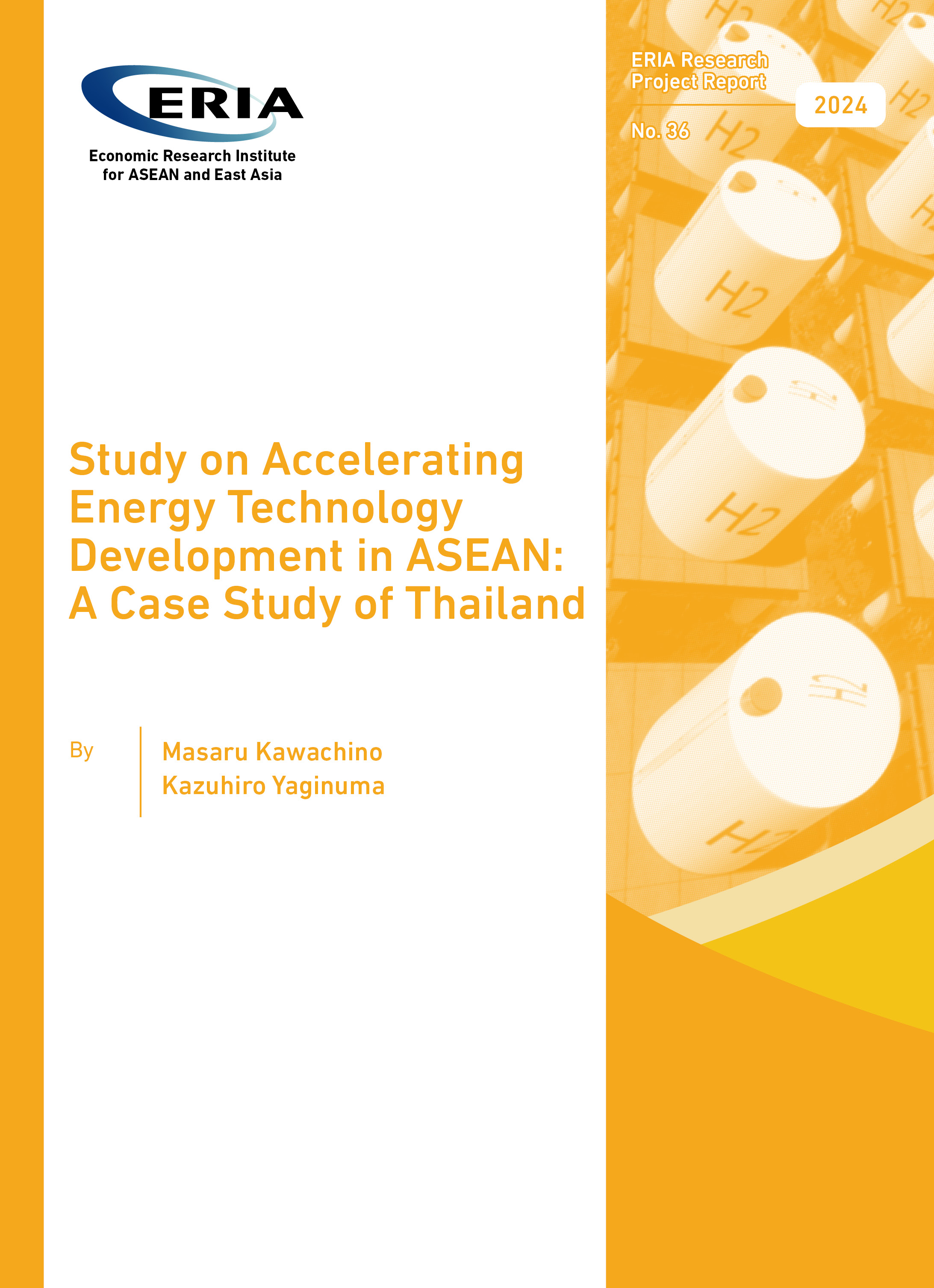Accelerating the Deployment of CCS in ASEAN: ERIA Participated in the South East Asia CCS Accelerator
Share Article:
Print Article:
Bangkok, 15-16 May 2023: The Global CCS Institute (GCCSI) in cooperation with Ministry of Energy Thailand and ASEAN Centre for Energy (ACE), organised the first South East Asia CCS Accelerator (SEACA) workshop. To help the ASEAN create a transition to a low-carbon energy future and tackle climate change, SEACA aspires to accelerate commercial CCS deployment in the region.
SEACA is built on three pillars that are crucial to the development of CCS projects: CCS Regulation, Enabling Policy, and Geological Storage Resource Development. The Global CCS Institute launched the Southeast Asia CCS Accelerator (SEACA), a platform for collaboration between governments and the respective agencies, international organizations, private sectors, and governments of developed economies with an interest in CCS in ASEAN to achieve net-zero emission target by deploying CCS technology.
Opening the workshop was Mr Alex Zapantis, General Manager Commercial, Global CCS Institute, who emphasised the importance of CCS in achieving net-zero emission and underscored the challenges in deploying CCS. He mentioned the fundamental question to be expected to be addressed through the workshop: what can SEACA do to drive CCS forwards in South East Asia region?
Dr Veerapat Kiatfuengfoo, Deputy Permanent Secretary of Thailand's Ministry of Energy, delivered a message about the importance of CCUS technology in reaching Thailand's long-term objective of carbon neutrality by 2050 and net-zero GHG emissions by 2065. Dr Veerapat further stressed the significance of increasing domestic and international collaboration for CCUS deployments in South East Asia.
Mr Beni Suryadi of the ASEAN Centre for Energy (ACE) echoed this sentiment, stating that CCS will play an important role in decarbonizing ASEAN energy systems. He noted that the AMEM meeting last year underlined regional commitments to cut ASEAN emissions, for which CCS is critical.
Mr Shigeru Kimura, Special Advisor to the President of Energy Affairs, Economic Research Institute for ASEAN and East Asia (ERIA), stated in his remarks that the EAS energy outlook in ASEAN member countries has been updated to incorporate low-carbon energy transition and carbon neutrality target by 2050 and 2060. The results show that ASEAN will significantly increase renewable energy, while coal and gas power generation will continue to be used. Mr Kimura highlighted that after 2040, ASEAN will apply CCS to both gas and coal power plants, indicating that CCS will be a critical technology for ASEAN to achieve net zero emissions. ERIA oversees the Asia CCUS Network, which work on the roadmap and implementation of CCS in the ASEAN region with the missions: 1) organize knowledge-sharing conferences; 2) conduct research studies; and 3) give capacity-building training, with the focus on CCUS/CCS issues. Mr Kimura also mentioned that currently ACN is collaborate with GCCSI on four pillars, namely CO2 storage potential, policy and regulatory framework, financial framework, as well as cross-border network and value chain.
In the SEACA workshop presentation sessions, project developers and other stakeholders from Exxon Mobil - Singapore, PTTEP - Thailand, Government of the Northern Territory Australia, JOGMEC - Japan, METI - Japan, Mitsubishi Corporation - Japan, and Santos - Australia presented on CCS projects, opportunities, and ambition in South East Asia.
Dr Han Phoumin, Senior Energy Economist of ERIA became the panel on the Policy Pillar of CCS discussing about the issues, opportunities, and barriers, which also touched upon the potential of direct investment and government procurement on CCUS projects.
The focus of the workshop's second day is mainly on discussions among workshop participants and stakeholders about the key pillars of policy, regulation, and storage related to the deployment of CCUS.
The outputs of the SEACA workshop will be used to assist the development of the CCS deployment framework and roadmap, which will serve as a reference and guide for ASEAN countries in establishing the paths to commercialization and development of CCS in the region. The workshop is expected to strengthen collaboration to investigate best practices for accelerating the deployment of CCUS, such as low-carbon incentives and the construction of a carbon trading mechanism.

.jpg)







